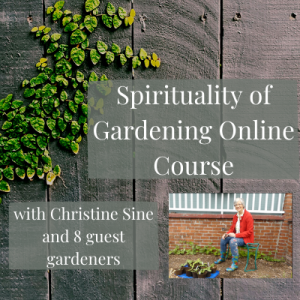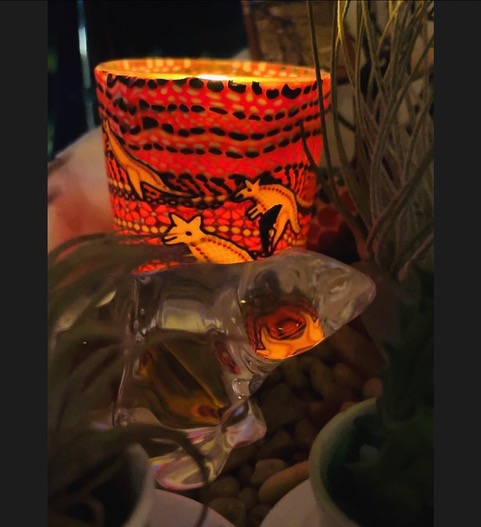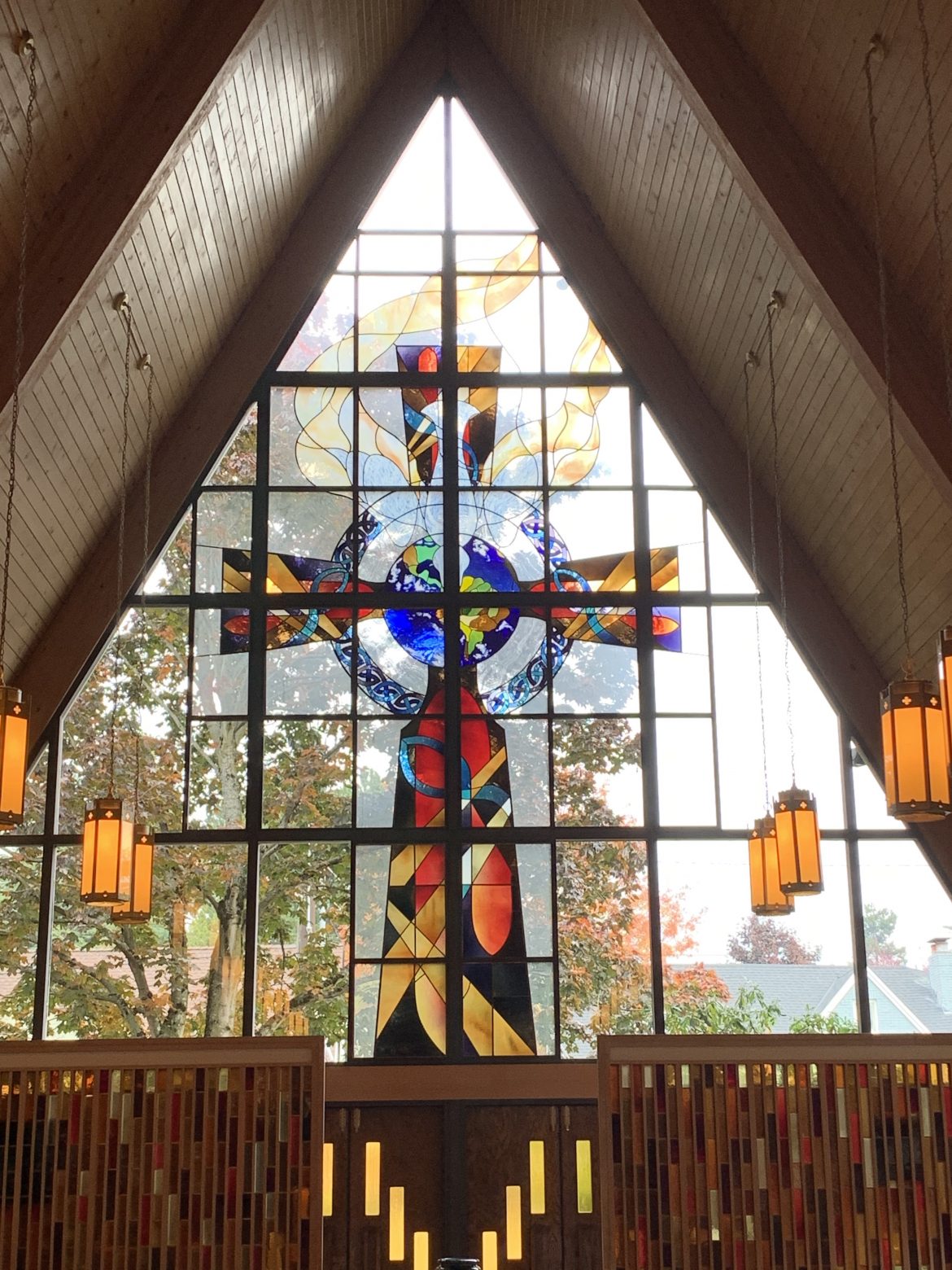Photos and writing by June Friesen. Scripture from The Message.
In the past few years as there has been an alert about not destroying pollinators but rather creating habitats that are friendly to them. It is often easy to forget that there are many things that are pollinators in our world. For the most part we think of bees no doubt because they gather pollen for food. As they gather it they also pollinate the plant so that it produces seed, vegetables and/or fruit. However, in my reading as well as in my observation I have observed that there are other creatures that pollinate as well. So many insects find themselves around plants/trees/flowers at different times looking for food as well as moisture sources. I have collected for this article several creatures that I have observed nestled in the center of flowers of one kind or another. The featured photograph is probably one of my most favorite. It was taken outside of a building known as The Surgeon’s House in Jerome, Arizona several years ago.
20-23 God spoke: “Swarm, Ocean, with fish and all sea life! Birds, fly through the sky over Earth!”
God created the huge whales, all the swarm of life in the waters, and every kind and species of flying birds. God saw that it was good.
God blessed them: “Prosper! Reproduce! Fill Ocean!
Birds, reproduce on Earth!”
It was evening, it was morning— Day Five.24-25 God spoke: “Earth, generate life! Every sort and kind:
cattle and reptiles and wild animals—all kinds.”
And there it was: wild animals of every kind,
Cattle of all kinds, every sort of reptile and bug.
God saw that it was good.


It definitely is interesting to me that there is really no reference that I can find to pollinators as such in the Scriptures, yet in the world today we know that they are of great value in so many ways – mostly for making plant reproduction possible. The second factor is that when I think of pollinators I automatically think of bees as when I was growing up I learned this from my grandfather who was a beekeeper. Yet there are many other insects that are pollinators and I dare say that even some birds, especially hummingbirds are also pollinators. What does it mean to pollinate? How does pollination take place?


Here are two photos of bees. Both are in the process of some form of pollinating but as you can observe the one is totally covered in pollen. Because I was there taking the photo, I can also tell you that the little pollen collector bags on his legs were near ready to burst and he just kept trying to work more pollen into them. If you look closely, you can also see that there is now loose pollen all over the flower petals that will likely scatter just in the breezes that blow. In the second photo the pollen is pretty much gone from the flower already but the little guy is determined that if there is any left, he will be the one to get it. I have had the privilege to observe bees a few other times playing in the flower centers gathering pollen. One time there was a couple of them literally rolling in the flower center or maybe it was more like frolicking.
I also posted a couple of photos of dragonflies and while we may not think of them as pollinators as such in the past couple of years my observation hiking near lakeshores is that they spend time alighting and flying from cattail to cattail and also among the water lilies that may be blossoming. Yes, again they may be eating and gaining nutrition yet in their flying from one cattail to another or water lily to water lily they are also carrying pollen and promoting good pollination. Below you will note butterflies, a fly and a grasshopper/locust. Again, these are not commonly thought to be pollinators however just moving from one plant/blossom to another they are pollinating even if it is unintentional.


So what can you and I gain from this? The first thing that we need to consider is how we care for these necessary creatures as they are around us. Yes, they can be a nuisance at times and for some the sting of a bee is literally deadly. If one takes a bit of time to study ecology we learn that the use of insecticides and even some kinds of detergents and cleaning agents are lethal and are killing off some of these creatures or altering their DNA so they are unable to do what they were created to do. In a documentary that I have watched a couple of times recently I have learned that one can plant flowers/gardens etc. that will provide a habitat and nurturing place for these creatures. Yes, God has gifted our earth with these many blessings called insects and bugs to be more of a blessing than a nuisance.


GRATITUDE FOR MY FRIENDS, THE POLLINATORS
Thank you, God, for the beauty and wonder of Your delightful creatures,
There are bees, there are butterflies, there are grasshoppers and dragonflies,
Some are delightful to the eye and others when spotted give pause to one’s step.
Yet their busyness about their business is really all they care to accomplish.
It is such a treat to watch the little bee seem to play in the flower center –
It is as if he romps, rolls, jumps and wiggles absolutely every which way –
Delightful to have found this bounty of food for his hive –
Yet in it all he is helping the flowers become able to produce capable seeds for planting and growing in the next season.
Thank you for the beauty of the dragonfly who seems to have a short attention span,
He seems to hardly be able to wait to get from one reed, cattail or flower to the next –
Is he fearful of the birds that hover overhead – maybe looking for a morsel of lunch?
Thank you for the pesky fly – yes, they are pesky to me at least –
But they too alight on the flowers and plants
And consciously or unconsciously scatter pollen from one place to another even if it is just dropping it as they fly by another plant.
Thank you for the grasshopper – hard to think he could pollinate too –
But he sometimes nestles in the depth of the flower or seedlings of grass
To quickly hop away to another and oops – he drops some pollen as he moves on.
And the butterfly – the beautiful butterfly –
I usually have been so mesmerized by the beauty I never gave it a thought
That they too were pollinators until just recently –
I noted one with a bit of pollen on his feet as he flew off one flower and onto another,
What an awakening it was to me.
And so, I am grateful for these beautiful, sometimes pesky creatures –
And I challenge each one of us to consider and observe –
How it is that our great and awesome Creator God
Has blessed us with these little creatures that take their jobs so seriously;
Let us too be challenged to be grateful today for the things that God has created us to do –
And let us bless the world today in pollinating our space
With gratitude and grateful hearts,
Sharing and blessing others around us
With God’s peace, hope and love.
Amen and amen.
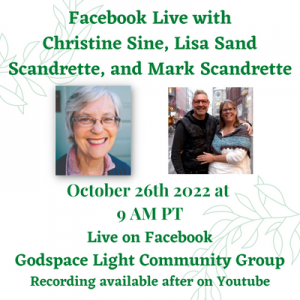 FB Live
FB Live
Join Christine Sine, Lisa Sand Scandrette, and Mark Scandrette for a lively discussion about their recent pilgrimages and the practice itself – Wednesday, October 26th at 9 am PT. Happening live in the Godspace Light Community Group on Facebook – but if you can’t catch the live discussion, you can catch up later on YouTube!
by Lilly Lewin
In this Sunday’s Lectionary Gospel reading, Jesus tells the story of the Pharisee and the tax collector in Luke 10:9-14.
It’s a story you’ve probably heard before, so to help us process the passage, I am choosing four paintings of the scene.
Take a look at each painting and allow the Holy Spirit to inspire you.

Pharisee and Tax Collector James Tissot

Pharisee and the tax collector by Jesus Mafa

Pharisee and the Tax Collector Barent Fabititus
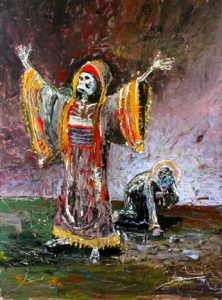
The Pharisee and the Tax Collector by Bryn Gillette
You can see a slide show with close ups and a few others HERE.
This process is called VISIO DIVINA, you can read more about this process HERE.
As you look at the Paintings….
Put yourself, imagine yourself, in each painting.
What do you notice?
What speaks to you? What bothers you?
Does anything scream loudly? Does anything resonate?
Talk to Jesus about what you notice.
I was struck by the Pharisee as skeleton. It is a powerful painting by an artist and art teacher who lives in Charlotte, NC, Bryn Gillet. The Pharisee enters the temple dead, just dry bones, not knowing that he’s dead and in need of resurrection. He is dressed in all his finery yet without any self awareness, just bones. The tax collector on the other hand, is on his knees, humble and self aware and he wears a halo. How often am I just a skeleton of who I want to be? Do I realize when I am just giving God a list of my accomplishments rather than listening ? How often do I judge my neighbor or criticize those who think and act differently than I do rather than praying for them and myself to see God in them?
NOW READ and Listen to the passage from LUKE 18: 9-14.
LUKE 18:9-14 NLT
Then Jesus told this story to some who had great confidence in their own righteousness and scorned everyone else: “Two men went to the Temple to pray. One was a Pharisee, and the other was a despised tax collector. The Pharisee stood by himself and prayed this prayer[a]: ‘I thank you, God, that I am not like other people—cheaters, sinners, adulterers. I’m certainly not like that tax collector! I fast twice a week, and I give you a tenth of my income.’
“But the tax collector stood at a distance and dared not even lift his eyes to heaven as he prayed. Instead, he beat his chest in sorrow, saying, ‘O God, be merciful to me, for I am a sinner.’ I tell you, this sinner, not the Pharisee, returned home justified before God. For those who exalt themselves will be humbled, and those who humble themselves will be exalted.”
LUKE 18:9-14 THE MESSAGE
He told his next story to some who were complacently pleased with themselves over their moral performance and looked down their noses at the common people: “Two men went up to the Temple to pray, one a Pharisee, the other a tax man. The Pharisee posed and prayed like this: ‘Oh, God, I thank you that I am not like other people—robbers, crooks, adulterers, or, heaven forbid, like this tax man. I fast twice a week and tithe on all my income.’
“Meanwhile the tax man, slumped in the shadows, his face in his hands, not daring to look up, said, ‘God, give mercy. Forgive me, a sinner.’”
Jesus commented, “This tax man, not the other, went home made right with God. If you walk around with your nose in the air, you’re going to end up flat on your face, but if you’re content to be simply yourself, you will become more than yourself.”
What questions come up for you from this passage?
What part of this story do you relate to in your life right now?
Are you personally feeling more like the tax collector or the Pharisee today?
Who are the tax collectors in our society today? Who are the Pharisees?
What do you need to ask forgiveness for today? Where have you played Pharisee lately? Ask Jesus for forgiveness.
The MESSAGE version ends with “if you’re content to be simply yourself, you will become more than yourself.” What things do you really like about yourself and make you content? What things make you…you? How does contentment help you stay humble and help you become more than yourself?
CLOSING PRAYER:
LORD Give us Grace Today,
To Love as You Love. Help us to Love with Extravagance.
Give us Hope today for ourselves and others.
Heal our hurts and our hearts today
So we can serve and help those around us.
Help us to know that you are enough.
And help us live today and everyday in Thankfulness.
For all you’ve done, and for all you bless us with!
In the Name of the Father, the Son and the Holy Spirit. AMEN.
©lillylewin and freerangeworship.com
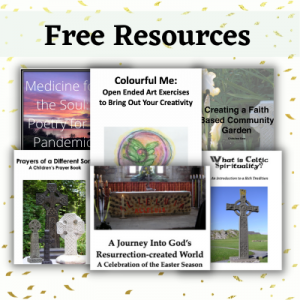 Did you know? We offer many wonderful free resources on our resource page and in our shop! From Advent retreats to coloring pages to poetry and more. Click here to explore our free downloadable offerings and more!
Did you know? We offer many wonderful free resources on our resource page and in our shop! From Advent retreats to coloring pages to poetry and more. Click here to explore our free downloadable offerings and more!
by Melissa Taft
Here in the Pacific Northwest, we are gearing up for the last bits of plentiful garden goodies and getting ready for celebrations of thanksgiving and harvest. As you head into seasons of thanksgiving or harvest (whether a spring harvest of overwintered vegetables or a late autumn harvest), you might enjoy the many resources Godspace has available on our Seasons and Blessings Resource Page!
Perhaps you are looking for ways to share a harvest bounty or give back in gratitude. You’ll find plenty of reflections and practical suggestions on Godspace. Christine Sine shares 10 Tips For Expressing Gratitude, and Lilly Lewin offers some gratitude tips in Good News and Gratitude.

You may be looking for ways to celebrate or incorporate harvest and gratitude and thanksgiving into your church service or private devotions. Christine Sine has created a gratitude scavenger hunt, based on her book The Gift of Wonder – though it is certainly adaptable! You can find some wonderful Harvest Prayers and Resources, as well as Thanksgiving Prayers, on our resource page as well. For example, this table talk by Laurie Klein is a wonderful Thanksgiving service you can hold in your home.
If you’re really longing for a comprehensive and nourishing retreat, you can sign up for our online course Gearing Up For A Season of Gratitude with Christine Sine and Lilly Lewin. You can enjoy at your own pace through inspiring discussions and fun activities.
Find everything from uplifting gratitude and harvest reflections to advice on greening your Halloween – on our Seasons and Blessings Resource Page!
Featured photo by Adam Winger on Unsplash; other photo by Samuel Regan-Asante on Unsplash
Explore the wonderful ways that God and God’s story are revealed through the rhythms of planting, growing, and harvesting. Spiritual insights, practical advice for organic backyard gardeners, and time for reflection will enrich and deepen faith–sign up for 180 days of access to work at your own pace and get ready for your gardening season.
Photos and writings by June Friesen. Scripture from The Message Translation.
Recently my husband and I were at a riparian area where there are hiking trails as well as several water areas. Various forms of wildlife make this area their home and on any given day the variety will be different as well as the same. There were a couple of very notable phenomena on this particular day – the beautiful clarity of the skies with various clouds and then the sheer quiet stillness of the water. There was so much to observe, to embrace and also to listen to. You will find a few poses of this girl here and there throughout this post. It seemed she was trying to communicate something with me, very likely “How many more photos are you going to take of me?”
First of all let us consider that it was God who indeed created the birds – every kind, every species – some in water and some that were on land and also many of them to fly.
God spoke: “Swarm, Ocean, with fish and all sea life!
Birds, fly through the sky over Earth!”
God created the huge whales,
all the swarm of life in the waters,
And every kind and species of flying birds.
God saw that it was good.God blessed them: “Prosper! Reproduce! Fill Ocean!
Birds, reproduce on Earth!”
It was evening, it was morning— Day Five.
When I read the creation story it always says God saw it, He looked at His work of the day and in each observation of His creation He said ‘it was good.’ Whether in nature being plant or animal, He did not necessarily create each thing to live forever but He did create them to reproduce, and to reproduce their own kind. While I have photos of ducks here, there are many birds that inhabit the waters, each one being unique.
I have a couple more passages of Scripture, one from the book of Matthew and one from the Psalms.
“If you decide for God, living a life of God-worship, it follows that you don’t fuss about
what’s on the table at mealtimes or whether the clothes in your closet are in fashion.
There is far more to your life than the food you put in your stomach, more to your outer
appearance than the clothes you hang on your body. Look at the birds, free and
unfettered, not tied down to a job description, careless in the care of God. And you countfar more to him than birds.


Now some verses from Psalm 104 –
You set earth on a firm foundation
so that nothing can shake it, ever.
You blanketed earth with ocean,
covered the mountains with deep waters;
Then you roared and the water ran away—your thunder crash put it to flight.
Mountains pushed up, valleys spread out
in the places you assigned them.
You set boundaries between earth and sea;
never again will earth be flooded.
You started the springs and rivers,
sent them flowing among the hills.
All the wild animals now drink their fill,
wild donkeys quench their thirst.
Along the riverbanks the birds build nests,
ravens make their voices heard.
You water the mountains from your heavenly reservoirs;
earth is supplied with plenty of water.
You make grass grow for the livestock,
hay for the animals that plow the ground.
Oh yes, God brings grain from the land,
wine to make people happy,
Their faces glowing with health,
a people well-fed and hearty.
GOD’s trees are well-watered.
As we read these verses, we see the value of water in all things. It is something that is necessary for anything that is living, whether it is a living organism or a creature that lives and moves upon the earth and that includes you and I.
In today’s world there is great concern about the availability of water, not just water but I might add clean water that is okay for us to drink for hydration. Over the past twelve months in Arizona where I live there has been great concern about the availability of water as the reservoirs are getting very low due to the lack of rain in so much of the country. In some countries/continents water has been a very precious commodity for many, many years, but our nation has been very blessed with water for the most part. In most areas we have had adequate rainfall until recent months.
In the beginning I mentioned that we were hiking when I took these photos. Since covid began my husband and I have made it a priority to go out in nature and hike at least once a week; often our hike takes us to a lake or an area where there is some kind of water feature. Water does not only provide for the birds, animals and plants in nature but it also provides opportunity for sports such as boating, kayaking, sailing, fishing etc. So my friends, gratitude for water covers a wide variety of opportunities for which we need to be grateful.
I invite you to join with me in the following prayer:
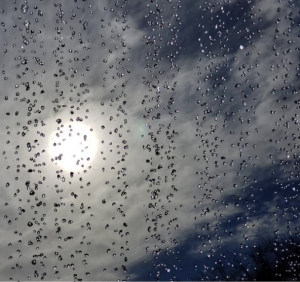
GOD, THANK YOU FOR THE WATER
God, I thank you for the water that provides for the living things in this world –
First there are the many, many trees that stand so strong and tall
That give shelter to birds, bugs, animals and even to humans at times;
Thank you for the many, many grasses that blanket the grounds in so many places,
In so many ways, in so many varieties
Creatively providing shelter for some creatures as well as foods for a variety of animals,
birds and bugs;
Thank you for the many, many flowers that dot our pathways here and there with
beautiful shapes, sizes and colors –
Some seem to be but for beauty, others hold medicinal qualities, while others also provide
seeds for food and pollen for the insects to gather –
God, we know that water is a number one necessity for all of these wonderful plants to
grow –
We are so thankful for the rainfall and the snow that comes to bless our earth with
moisture so needed.
God, I thank you for the water that You have provided in the underground springs
That bubbles up with fresh, clean, sparkling water to wet our parched tongues,
That trickles from our faucets and showerheads, bathing our bodies, bringing a freshness
so clean –
Thank you for the many wells that also yield water –
There are so many places that share this resource so valuable.
God, I thank you for the engineering of dams and turbines –
That collect the waters and use it to bring us a commodity called electricity
That many of us feel we could never live without.
Our hearts are repentant for the many times we take our water for granted,
We grumble if the water is hot, if the water is not,
We grumble if the electricity is not, we take it for granted when it is on –
God forgive us for our selfish thoughts,
Forgive us for our grumbling hearts,
Please put within us now a fresh ‘thank you’
As we take a fresh drink of water just now.
Amen.
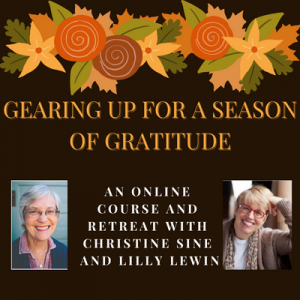 Christine Sine and Lilly Lewin inspire ways to get geared up for the coming season of gratitude in this popular online course! Sign up for 180 days to enjoy this retreat at your own pace – including craft tutorials and print-outs plus much more. Check it out in our shop!
Christine Sine and Lilly Lewin inspire ways to get geared up for the coming season of gratitude in this popular online course! Sign up for 180 days to enjoy this retreat at your own pace – including craft tutorials and print-outs plus much more. Check it out in our shop!
by Laurie Klein
“He was looking at the clay. He had his ear to it. He was listening.
‘It is breathing,’ he said; and then he filled it with air.”
Guest potter Robert Turner was demonstrating his craft; Professor M.C. Richards was observing his actions.
We are invited into the scene. Does it remind you of God forming Adam from the dust of the earth? Picture that perfectly balanced—yet inert—body of clay.
Now, see it enlivened. With divine breath.
Have you ever bowed over a potter’s wheel, your overlapped palms a wet cradle for one spinning mound of clay? My repeated attempts, in a college class, repeatedly failed. Talk about ungainly.
The skilled potter makes it look easy. Natural. However, the secret of shaping and filling a readied vessel eluded me.
Centering
In pottery, as in spiritual practice, the art of centering precedes responsive creating. One aspect of centering requires marrying effort with bodily rhythms.
“You can experience relatedness at the most elementary level,” my fervent professor said. “Remain conscious, present to the moment. Align each exertion with your inhale and exhale.”
Sounds so zen. So holistic. Harrumph.
Show me the rookie who can simultaneously monitor her breathing while handling gloppy mud—seemingly bent on resisting human control.
Today, recalling those early lessons, I glimpse something new . . .
About creation
I imagine being a rookie guest, once again, at the potter’s wheel. I think about acts of creation and the cyclical world of the creation that surrounds us. I remember my next inhale is linguistically linked with the verb “inspire.” Go on, I tell myself: take a deep one, right now, alert to the wonder of oxygenating muscles, tissues, cells.
Sel-ah-h-h!
Do I pause often enough these days to exult in the pulse that makes me kin with all other life-serving entities?
No. So, why not?
Post-pandemic
Trouble is, we’ve taught ourselves to ration breath. We’ve trained ourselves to preserve physical distance from others to safeguard health.
It might take deliberate effort to again marvel that the air we breathe was recently used by another being and will soon be taken in, yet again, by someone else.
Shared air has taken on the taint of fear.
Yet God sustains our precious atmosphere. Call to mind the generosity of oxygen’s availability. Let’s once again choose to trust—and feast on—this miracle.
Breath can be more than a mechanical endeavor, invisibly ghosting below our level of awareness.
Our next breath can be an intentional ingesting of essential Life: a presence, a guesting, a gift.
A Practice
Will we open anew to the in-and-out ways breathing cocoons and empowers body, spirit, and psyche?
How will we re-enter the body’s natural gateway to healing stillness via lungs and the ever- pumping heart?
St. Hesychios the Priest, from the Eastern Christian tradition, advises one means to accomplish
this. “Let the name of Jesus adhere to your breath, and then you will know the blessings of stillness.”
In response, I created a breath prayer, set to my personal rhythm of inhale and exhale. Each phrase takes two full measures of a 3-count beat—1, 2, 3 / 4, 5, 6 / 1, 2, 3 / 4, 5, 6—like a slow waltz. You might try keeping time with your fingers, at first.
(inhale) Holy One . . . (exhale) commune with me
Perfect Love . . . suffuse me
Light of Life . . . illumine me
Three-in-one . . . I, in Thee
Here am I . . . use me.
Prayerfully syncing words like these with my breath becomes triply intimate.
Dear fellow vessels of clay, let’s remain supple in the Potter’s hands, given to the cadence of life thrumming within and around us. This is union. A sacred communion.
And as we rest into this practice, breath by breath, may we better serve our Creator. Amen.
 Photos by Quino Al on Unsplash
Photos by Quino Al on Unsplash
 Digging Deeper: The Art of Contemplative Gardening
Digging Deeper: The Art of Contemplative Gardening
Are you yearning to Dig Deeper? Perhaps you are looking for refreshment in your contemplative practices or for creativity in prayer. Christine Sine’s latest book is packed full of contemplative wisdom and inspiration for creating your own meditative focus. Click for more details!
A couple of weeks ago I introduced you to my new contemplative garden which I created in response to our October and November theme Gratitude as Guests of the World . Each morning I sit in the dark for a few minutes, reciting the first few verses from John’s gospel. I particularly love The Voice translation.
Before time itself was measured, the Voice was speaking.
The Voice was and is God.
2 This celestial Word remained ever present with the Creator;
3 His speech shaped the entire cosmos.
Immersed in the practice of creating,
all things that exist were birthed in Him.
4 His breath filled all things
with a living, breathing light—
5 A light that thrives in the depths of darkness,
blazes through murky bottoms.
It cannot and will not be quenched. (John 1:1-5)
It is good, this sitting in the dark, alone with God, in the moments before the light of dawn brings everything into focus. My eyes must attune themselves to see and in that seeing the true splendour of God is often revealed.
Next, sitting with a heightened sense of the presence of God around me, I light the candles in my circle of light that surrounds my sacred space. I image that the living, breathing light of Christ lights them with me. Then I focus on my garden for a time of meditation. It too glows with light, a light that shines in, through and around the gifts and blessings of the garden.
Each morning it seems God inspires me with new thoughts, ideas and images, many of which I express in short prayers that I post on Instagram and Facebook. This is a very special time for me and I cherish the thoughts and prayers that result so I brought some of them together in this short meditation video. I hope you enjoy it too.
Perhaps you are also inspired to spend time meditating on scripture in the dark. Start with the verses above. Read them in several translations. Which words or phrases catch your attention? Sit and savour them for a few minutes. Now turn on the lights and read the scripture again. How does your perception change? What is God saying to you through these scriptures today?
As I did this today, I became very aware of the light shining from the candle in the small votive holder into and through the crystal polar bear. It took my breath away. It’s like the living, breathing light of Christ that fills all things and and radiates through all things, I thought. Not surprisingly, another prayer which I have not yet incorporated into a video came to mind:
I start my day in the dark,
Aware that alone I cannot see,
A single step ahead.
All is mystery.
All is hidden and unknown.
Only God’s light illumines the path.
Only Christ’s light shines before me,
Only the Spirit’s light guides me when I stumble.
The darkness is not dark to God.
It glows with the living, breathing light.
That shapes all things,
Surrounds all things,
Shines through all things.
It cannot and will not be quenched.
(c) Christine Sine 2022
 We all need the Wholeness of God…this resource includes reflections and activities for coping and thriving during the COVID-19 challenges in search of shalom as well as hope for restoration during and after this period of social distancing.
We all need the Wholeness of God…this resource includes reflections and activities for coping and thriving during the COVID-19 challenges in search of shalom as well as hope for restoration during and after this period of social distancing.
A contemplative service with music in the spirit of Taize. Carrie Grace Littauer, prayer leader, with music by Kester Limner and Andy Myers.
As an Amazon Associate, I receive a small amount for purchases made through appropriate links.
Thank you for supporting Godspace in this way.
When referencing or quoting Godspace Light, please be sure to include the Author (Christine Sine unless otherwise noted), the Title of the article or resource, the Source link where appropriate, and ©Godspacelight.com. Thank you!




